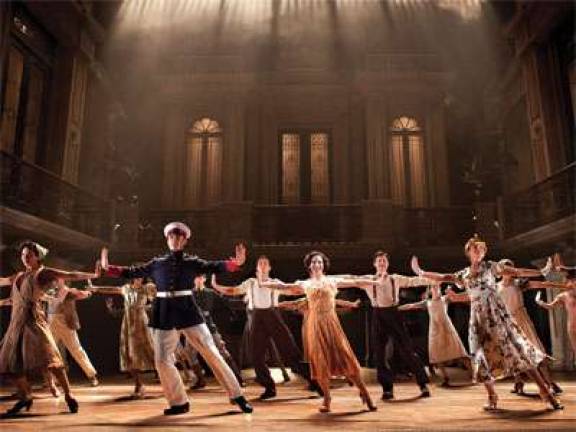Armond White: The Prophecy of Evita

Webber and Rice's Celebrity Expose Evita is back?and at the right time, too. Celebrity worship wasn't like it is now when Andrew Lloyd Webber and Tim Rice debuted Evita in 1975 as a concept album featuring Julie Covington of Rock Follies fame. There was no irony?or subservience?in their original idea of exploring the dubious sanctity of Argentine dictator Juan Peron's fashion-plate wife Eva. They created Evita as their second exploration into the cult of personality that began with Jesus Christ Superstar. The music in both productions carries far more verve and melodious emotion than a schematic conceit. Webber and Rice's modernist approach to legend was only mildly sardonic which explains why both shows have lasted?Superstar still moves the devout as well as the non-religious and Evita even fascinates political skeptics. Incapable of Sondheim's cynicism, they displayed greater insight into fame than today's brutishly condemnatory and cravenly obsequious media. In the current Broadway version directed by Michael Grandage, Ricky Martin portrays Che (Eva's foil), now understood as a common skeptic rather than a demi-oracle. Che's failed revolutionary principles (crumbled like Communism after the Berlin Wall) intensifies the spotlight on Eva Peron who now stands as a perfect precursor to the celebrityhood of our time. Appreciating Evita this way is a testament to Webber and Rice's great instincts. They didn't simply predict the celebrity era, they anatomized its origin. The show portrays the same mass hysteria seen at the mourning for Princess Di and Kim Jong Il. That's why casting Madonna in Alan Parker's disastrous 1996 movie Evita was not a stroke of genius; it was merely redundant since Madonna had already achieved dictatorial status in the Pop universe. (Her incompetent singing and acting underscored her fakery of Eva's personality.) Madonna could not accomplish Webber and Rice coup de theatre "Don't Cry For Me, Argentina," the non pareil statement of celebrity and showbiz hubris. Understanding that song today, after the myriad examples of female pop icons from Madonna on up to the Daily Beast, the Huffington Post, Buckingham Palace and the White House, reveals Evita's unsuspected political brilliance. Che's early warning "Eva beware your ambition!" comes to roost in "Don't Cry For Me, Argentina," that Cinderella moment when the lower class climber reaches the peak of Buenos Aires power and shrewdly lords it over the people. The song is breathtakingly moving, devious and (knowingly) hollow?a command for attention that glories in the spectacle of self. Line by line, Eva appeals to the admiration and envy of the servile throng ("All you can see is the girl you once knew/ Although she's dressed up to the nines/ At sixes and sevens with you"). She dissolves her difference from them as a matter of happenstance. Eva's craftiness is stunning when she downplays fortune and fame as "illusions"?a word easy to coo, that floats on one long breath, smooth as a drug-dealer's promise. Her admonition "They're not the solutions they promise to be" is the slickest, clearest demagoguery until Oprah Winfrey came along a decade later. And like Oprah, Eva unctuously bleats "I love you and hope you love me." There's no bombast in this great theatrical moment, yet it's as modest as Princess Diana's wedding/coronation. Eva's ballgown and new blonde beehive as she steps onto the balcony for her state address contrast the lullaby's deceptive low-pressure; it's the orchestration that surges, swaying along with the mob who are dazzled by the pretense of a public figure seeming to dismiss the power they dream of sharing. To read the full review at CityArts [click here](http://cityarts.info/2012/04/17/the-prophecy-of-evita/).